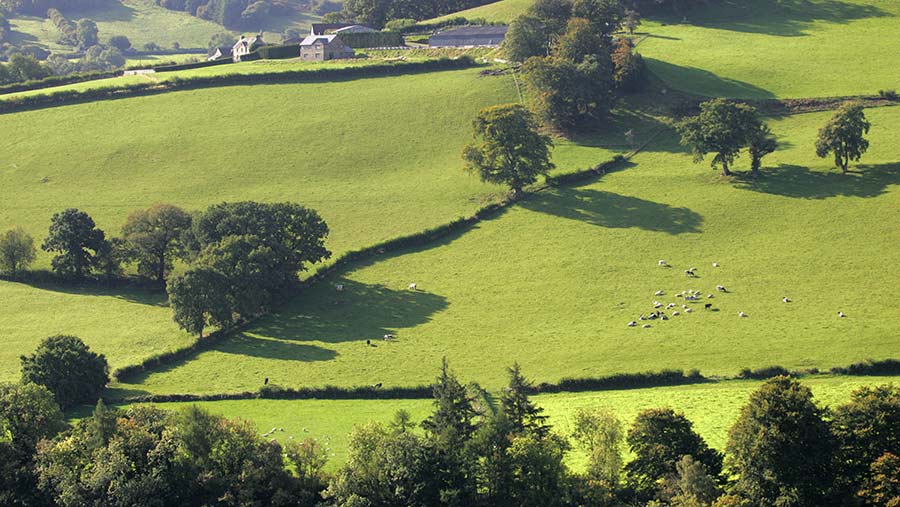Welsh farmers face ‘funding cliff-edge’ if Glastir not extended
 © Tim Scrivener
© Tim Scrivener A group of farming and environmental organisations has written to the Welsh government, expressing deep concern regarding the lack of Glastir support in place for 2024.
While the Welsh government committed in 2021 to a two-year extension of the Glastir Advanced, Commons and Organic contracts, and last year agreed to roll over the Basic Payment Scheme to 2024, it has so far remained silent on plans for Glastir beyond December 2023.
See also: Welsh farmers face massive hike in sheep dip disposal fees
With the schemes worth about £35m each year to Welsh farmers, the seven organisations, including the Farmers Union of Wales, the Nature Friendly Farming Network, TFA Cymru and CLA Cymru, have written to rural affairs minister Lesley Griffiths, demanding an end to the uncertainty.
“It is of great concern that there is no commitment from Welsh government to fund existing Glastir contracts beyond 2023,” they wrote.
“As the Sustainable Farming Scheme [SFS] isn’t due to be introduced until the beginning of 2025, many Welsh farmers, who are being supported by Glastir to manage their land for nature, carbon and sustainable food production goals, are currently facing a significant funding cliff-edge at the end of this year.”
If this is not addressed, the group argues that it will undermine confidence in future farming with nature schemes, such as the SFS, and could jeopardise the environment if farmers are forced to revert to more intensive farming practices.
In response, a Welsh government spokesperson said it was “considering our options on future support of the scheme” and “we will make an announcement and inform farmers of this decision next month”.
The comments follow this week’s approval of a new Welsh Agriculture Bill by the Senedd in Cardiff, which paves the way for the launch of the Sustainable Farming Incentive – the post-Brexit flagship support policy for Wales – in 2025.
